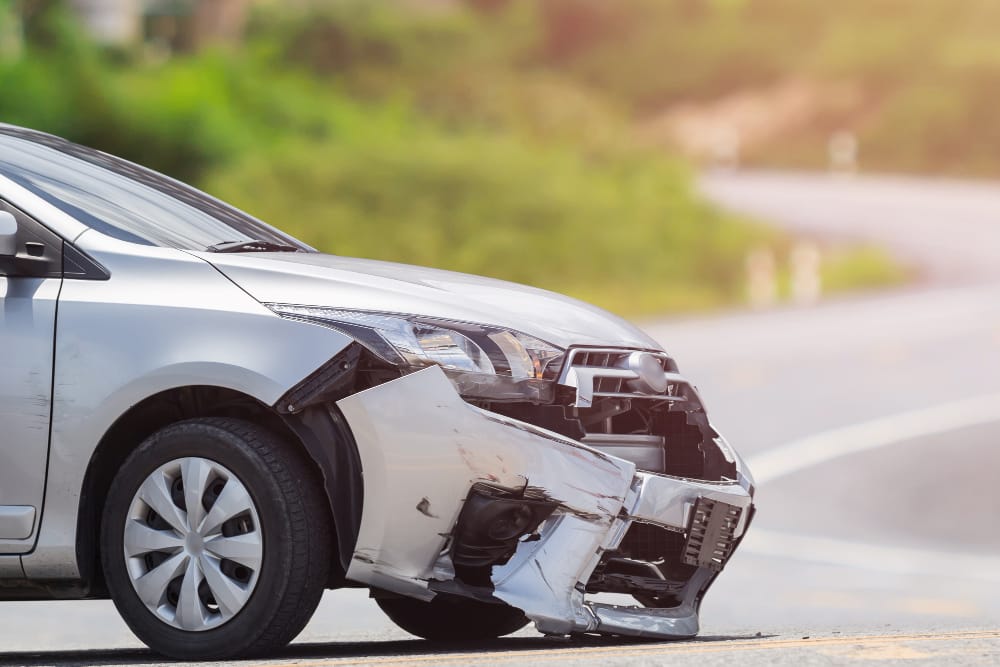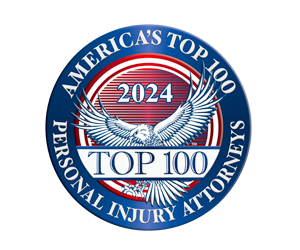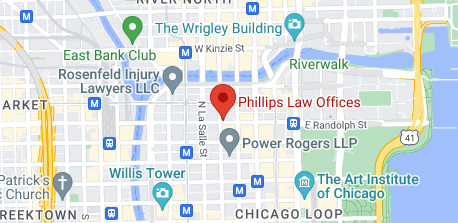In a car accident it is important to stay calm and know what to do, especially if it’s not your fault. First things, make sure everyone is okay and call emergency services if needed. Then, gather information like the other driver’s name, license plate number, and insurance details. This will help with any insurance claims later on. Remember, safety comes first, so if you’re injured, seek medical attention right away.
In this guide, we will discuss what you should do immediately after a car accident when it was not your fault, which can help you get the compensation you deserve.
Overview of steps to take when you’re not at fault
When you find yourself in a situation where you’re not at fault for a car accident, there are specific steps you can take to protect yourself and ensure that your rights are upheld:
- Ensure Safety: The first priority is always safety. Check for injuries and move to a safe location if possible. If necessary, call emergency services to report the accident and request medical assistance.
- Document the Scene: Gather information about the accident scene, including the names and contact details of all parties involved, license plate numbers, insurance information, and any eyewitness accounts. Take photographs of the vehicles, the surrounding area, and any visible damage.
- Contact Authorities: In many jurisdictions, it’s mandatory to report accidents to the police, especially if there are injuries or significant property damage. Even if it seems minor, having an official record of the incident can be crucial later on.
- Seek Medical Attention: Even if you feel fine initially, it’s important to seek medical attention promptly. Some injuries may not be immediately apparent, and documentation of any injuries is essential for insurance claims and legal proceedings.
- Notify Your Insurance Company: Contact your insurance provider as soon as possible to report the accident and initiate the claims process. Provide them with all relevant information and documentation to support your claim.
- Consult Legal Counsel: Depending on the circumstances of the accident and the extent of the damages, it may be advisable to consult with a legal professional specializing in personal injury or car accident cases. They can provide guidance on your rights and options for seeking compensation.
Stay Calm and Assess the Situation
After being involved in a car accident , it’s crucial to maintain a calm demeanor and assess the situation carefully. This initial response sets the tone for how effectively you can handle the aftermath of the accident.
Importance of Remaining Composed
Remaining composed is essential for several reasons. Firstly, it allows you to think clearly and make rational decisions amidst the chaos. Panic can cloud judgment and hinder your ability to take appropriate actions. Secondly, staying calm can help prevent escalating tensions between you and the other parties involved in the accident. Emotions tend to run high after such incidents, and maintaining composure can help keep the situation from escalating further.
Lastly, remaining calm sets a positive example for others involved, potentially diffusing the situation and facilitating smoother interactions with law enforcement and insurance representatives.
Checking for Injuries
Immediately after the accident, it’s crucial to check yourself and others for any injuries. Adrenaline can mask pain, so even if you feel fine initially, it’s essential to assess your physical condition thoroughly. Check for any visible injuries or signs of distress in yourself and your passengers. Also, inquire about the well-being of others involved in the accident. Promptly seeking medical attention for any injuries, no matter how minor they may seem, is imperative for ensuring your health and well-being in the long run.
Move to a Safe Location
After being involved in a car accident, one of the first actions to take is to move your vehicle to a safe location. This step is crucial for ensuring the safety of everyone involved and minimizing further risks.
Reasons to Move Vehicles Out of Traffic
Moving vehicles out of traffic is essential for several reasons. Firstly, it helps prevent additional accidents or collisions with passing vehicles. A disabled vehicle left in the middle of the road can pose a significant hazard to other drivers, especially on busy roads or highways. Secondly, clearing the roadway allows for smoother traffic flow, reducing congestion and the likelihood of secondary accidents. Moreover, moving vehicles to the side of the road provides a safer environment for assessing damages, exchanging information, and waiting for assistance.
Ensuring Safety of Everyone Involved
Ensuring the safety of everyone involved in the accident is most important thing. Moving vehicles to a safe location helps protect not only the drivers and passengers directly involved in the collision but also bystanders and other road users. It minimizes the risk of additional injuries or property damage that could occur if the vehicles remain in a hazardous position. Moreover, relocating to a safe spot allows for better access to emergency services if needed and facilitates the exchange of information between parties involved in the accident.
Call Emergency Services
Dialing 911 or Local Emergency Number
The first step in calling emergency services is to dial 911 or the local emergency number, depending on your location. These numbers connect you directly to trained dispatchers who can coordinate emergency response services, including police, fire, and medical assistance. It’s essential to have these numbers readily available in case of emergencies, as quick access can make a significant difference in the outcome of the situation.
Providing Necessary Information to Dispatchers
When contacting emergency services, it’s crucial to provide accurate and detailed information to the dispatchers. This includes:
Location of the accident: Provide the exact location or nearest landmarks to help emergency responders locate the scene quickly.
Nature of the incident: Describe the type of accident (e.g., car collision, pedestrian involved) and any apparent injuries or hazards.
Number of individuals involved: Provide information about the number of vehicles and individuals involved in the accident, including passengers and pedestrians.
Description of injuries: If possible, provide details about any injuries sustained by individuals involved in the accident. This information helps emergency responders prioritize their response and allocate appropriate resources.
Exchange Information
Essential Details to Exchange with Other Drivers
When exchanging information with other drivers, it’s essential to gather the following details:
Contact information: Exchange names, phone numbers, and addresses with the other drivers involved in the accident. This information is vital for communication purposes and may be required by insurance companies to process claims.
Insurance information: Exchange insurance policy details, including the name of the insurance company, policy number, and contact information for the insurance provider. This information is necessary for filing insurance claims and determining liability for the accident.
Vehicle information: Exchange details about the vehicles involved, including make, model, year, color, and license plate numbers. Documenting this information helps ensure accurate identification of the vehicles involved in the accident.
Driver’s license information: Exchange driver’s license numbers and state of issuance with the other drivers involved. This information may be required for verifying identities and determining legal driving privileges.
By exchanging these essential details with other drivers, you can ensure that all necessary information is available for processing insurance claims and resolving any disputes that may arise regarding liability for the accident.
Importance of Getting Contact Information from Witnesses
In addition to exchanging information with other drivers, it’s important to gather contact information from any witnesses to the accident. Witnesses can provide valuable testimony regarding the circumstances of the accident, which may help establish fault and liability.
When gathering contact information from witnesses, be sure to obtain their names, phone numbers, and addresses. Additionally, ask if they would be willing to provide a statement to law enforcement or insurance companies regarding what they saw.
Having contact information from witnesses can be invaluable in the event of disputes or discrepancies regarding the details of the accident. Witness testimony can provide independent verification of events and help ensure that the facts surrounding the accident are accurately represented.
Document the Scene
Taking Photographs of the Accident Scene
Use your phone or camera to take pictures of the accident scene from different angles. Make sure to capture the positions of the vehicles involved, any damages, and any skid marks on the road. Take photos of street signs, traffic lights, and any other relevant details. These pictures can help insurance companies and authorities understand what happened.
Writing Down Relevant Details like Weather Conditions and Road Markings
Write down details about the weather at the time of the accident, such as rain, snow, or fog. Note any road conditions like potholes or slippery surfaces. Also, write down details about road markings, like stop signs or lane dividers. These details can provide important context for understanding how the accident occurred.
Seek Medical Attention
Importance of Getting Checked by Medical Professionals
It’s important to seek medical attention after a car accident, even if you feel okay. Sometimes, injuries may not show symptoms right away, and only a medical professional can accurately assess your condition. Getting checked by a doctor ensures that any injuries, even minor ones, are identified and treated promptly. This can prevent complications and help you recover faster.
Signs of Injuries That May Not Be Immediately Apparent
Some injuries may not manifest symptoms immediately after a car accident. It’s essential to be aware of these signs, including:
Headaches: Head injuries, such as concussions, may not cause symptoms right away but can lead to headaches later on.
Neck or back pain: Whiplash, a common injury in car accidents, may cause neck or back pain that develops over time.
Numbness or tingling: These sensations in your extremities could indicate nerve damage or spinal injuries.
Internal bleeding: Symptoms may include abdominal pain, dizziness, or fainting, which can develop hours or days after the accident.
Emotional distress: Mental health issues like anxiety or PTSD can develop following a traumatic event like a car accident.
Notify Your Insurance Company
Timeliness of Reporting the Accident
It’s crucial to report the accident to your insurance company as soon as possible after it occurs. Most insurance policies have specific time limits for reporting accidents, and failing to do so within the stipulated timeframe could result in complications or even denial of coverage. By promptly notifying your insurer, you ensure that they can initiate the claims process efficiently and provide you with the necessary assistance.
Providing Accurate Information to Your Insurer
When reporting the accident to your insurance company, it’s essential to provide accurate and detailed information about the incident. This includes:
Date, time, and location of the accident: Provide specific details about when and where the accident occurred, including street names, intersections, or landmarks.
Description of the accident: Describe the circumstances leading up to the accident and how it occurred. Be honest and factual in your account of the events.
Details of the vehicles involved: Provide information about the vehicles involved in the accident, including make, model, year, and license plate numbers.
Contact information for other parties: Share the contact information of the other drivers involved in the accident, including names, phone numbers, and addresses.
Witness information: If there were any witnesses to the accident, provide their contact information as well. Witness testimony can be valuable for corroborating your account of the events.
Injuries and damages: Describe any injuries sustained in the accident and the extent of damages to your vehicle. Provide any medical reports or repair estimates to support your claim.
Avoid Admitting Fault
Importance of Refraining from Making Statements of Guilt
After a car accident, it’s essential to avoid admitting fault or making statements that could be interpreted as an admission of guilt. Admitting fault can have serious consequences, including liability for damages and legal ramifications. Even if you believe you may have contributed to the accident in some way, it’s important to refrain from making definitive statements about fault until all the facts are known. Admissions of guilt can be used against you in insurance claims or legal proceedings, potentially resulting in financial liabilities or legal penalties.
Letting the Authorities Determine Fault
Instead of assigning blame yourself, it’s best to let the authorities, such as law enforcement officers, determine fault based on their investigation of the accident scene and examination of the evidence. Law enforcement officers are trained to impartially assess the circumstances of the accident and determine who was at fault based on factors such as traffic laws, witness statements, and physical evidence. By allowing the authorities to conduct their investigation and make an official determination of fault, you ensure that the process is fair and objective.
Gather Evidence
Collecting Witness Statements
When gathering evidence after a car accident, obtaining witness statements can be crucial. Witnesses who saw the accident occur can provide valuable information about what happened and help corroborate your account of the events. To collect witness statements:
- Approach witnesses politely and ask if they saw the accident happen.
- Take notes or record their statements, including their names, contact information, and a brief summary of what they observed.
- Encourage witnesses to provide their statement to law enforcement officers at the scene, if possible.
- Thank witnesses for their assistance and offer to provide your contact information if further information is needed.
Obtaining a Copy of the Police Report
Obtaining a copy of the police report is another essential step in gathering evidence after a car accident. Law enforcement officers who respond to the scene will typically prepare a report detailing their investigation and findings. To obtain a copy of the police report:
- Ask the responding officer how to obtain a copy of the report.
- Follow the instructions provided by the officer, which may involve requesting the report from the police department’s records division or online portal.
- Provide any required information, such as the date, time, and location of the accident, to facilitate the search for the report.
- Pay any applicable fees for obtaining a copy of the report, if necessary.
- Review the report carefully once received to ensure accuracy and completeness. If there are any inaccuracies or missing information, follow up with the police department to address them.
Consult Legal Representation
Reasons to Seek Advice from a Lawyer
Protection of Legal Rights: Consulting a lawyer after a car accident can help protect your legal rights. An experienced attorney can advise you on your rights under the law and ensure that you take the necessary steps to protect yourself from liability or unfair treatment.
Evaluation of Liability: A lawyer can help evaluate liability for the accident and determine whether you may be entitled to compensation for damages. They can assess the circumstances of the accident, review evidence, and advise you on the strength of your case.
Negotiation with Insurance Companies: Dealing with insurance companies can be complex and intimidating. A lawyer can handle negotiations with insurance adjusters on your behalf to ensure that you receive fair compensation for your injuries and damages.
Representation in Legal Proceedings: If your case proceeds to litigation, having legal representation is essential. A lawyer can represent you in court, file legal documents, and advocate for your interests during hearings and trials.
Access to Resources: Lawyers have access to resources such as expert witnesses, accident reconstruction specialists, and medical professionals who can provide valuable support and testimony for your case.
Understanding Your Rights and Options
Explanation of Legal Rights: A lawyer can explain your legal rights after a car accident, including your right to compensation for medical expenses, lost wages, pain and suffering, and property damage.
Exploration of Legal Options: Legal representation allows you to explore your options for pursuing compensation, whether through an insurance claim, negotiation with the at-fault party, or litigation.
Guidance Through the Legal Process: Navigating the legal process can be confusing and overwhelming, especially if you are recovering from injuries sustained in the accident. A lawyer can guide you through each step of the process, from filing paperwork to attending court hearings.
Risk Assessment: A lawyer can help you assess the potential risks and benefits of pursuing legal action. They can provide an objective evaluation of your case and advise you on the likelihood of success.
Consulting legal representation after a car accident provides you with the guidance, support, and advocacy you need to protect your rights and pursue fair compensation for your injuries and damages. Whether you are negotiating with insurance companies or preparing for litigation, having an experienced attorney on your side can make a significant difference in the outcome of your case.
Know Your Rights
Understanding State Laws Regarding Car Accidents
Legal Responsibilities: It’s crucial to understand your legal responsibilities under state laws regarding car accidents. This includes requirements such as reporting accidents to law enforcement, exchanging information with other drivers, and cooperating with investigations.
Fault Determination: Each state has its own rules for determining fault in car accidents. Some states follow a comparative fault system, where fault is assigned to each party involved based on their degree of negligence. Others follow a no-fault system, where each party’s insurance covers their own damages regardless of fault.
Statute of Limitations: State laws set deadlines, known as statutes of limitations, for filing personal injury claims or lawsuits after a car accident. It’s important to be aware of these deadlines to ensure that you don’t miss the opportunity to seek compensation for your injuries and damages.
Insurance Requirements: States have minimum insurance requirements that drivers must meet to legally operate a vehicle. Understanding these requirements can help ensure that you have adequate coverage in the event of an accident.
Seeking Compensation for Damages
Types of Damages: After a car accident, you may be entitled to compensation for various types of damages, including medical expenses, lost wages, property damage, and pain and suffering.
Insurance Claims: If you were not at fault for the accident, you may be able to seek compensation through the at-fault driver’s insurance company. This typically involves filing a claim and providing evidence of your damages.
Personal Injury Lawsuits: In cases where insurance coverage is insufficient or disputed, you may need to file a personal injury lawsuit against the at-fault party to seek compensation. This legal action allows you to present your case in court and potentially recover damages through a settlement or trial verdict.
Legal Representation: Consulting with a personal injury lawyer can help you understand your rights and options for seeking compensation after a car accident. A lawyer can provide legal advice, negotiate with insurance companies on your behalf, and represent you in court if necessary.
What should I do immediately following a car accident?
Immediately following a car accident, the most important things to do are stay calm, check for injuries, and move to a safe location if possible. Then, call emergency services by dialing 911 or your local emergency number to report the accident and request medical assistance if needed. While waiting for help to arrive, exchange information with the other drivers involved, including names, contact details, and insurance information. It’s also crucial to document the scene by taking photos and obtaining witness statements if possible. Avoid admitting fault and consult legal representation if necessary to understand your rights and options moving forward.
Do I need to call the police if it’s a minor accident?
Yes, it’s generally a good idea to call the police even for minor accidents. They can help document the accident, which is important for insurance purposes and if there are any disputes later on. Plus, they can ensure everyone’s safety and provide assistance if needed.
Should I admit fault at the scene of the accident?
No, it’s not recommended to admit fault at the scene of the accident. It’s important to avoid making any statements that could be interpreted as admitting fault until all the facts are known. Let the authorities determine fault based on their investigation of the accident. Admitting fault could have legal consequences and impact insurance claims, so it’s best to refrain from making any definitive statements about fault until the situation has been thoroughly assessed.
How to prove a car accident wasn’t your fault?
To prove a car accident wasn’t your fault, gather evidence like photos of the scene, witness statements, and any relevant documents like the police report or medical records. You can also reach out to your insurance company and provide them with all the information you have. If necessary, seek legal advice to protect your rights and ensure a fair resolution.
Contact Our Car Accident Attorney In Chicago For your Injury Compensation
If you’ve been injured in a car accident that wasn’t your fault, don’t hesitate to contact our Chicago car accident attorney for help. We’re here to assist you in getting the compensation you deserve for your injuries. Reach out to us today to schedule a free consultation and discuss your legal options.
Interesting Reads:
What does a truck accident lawyer do?







